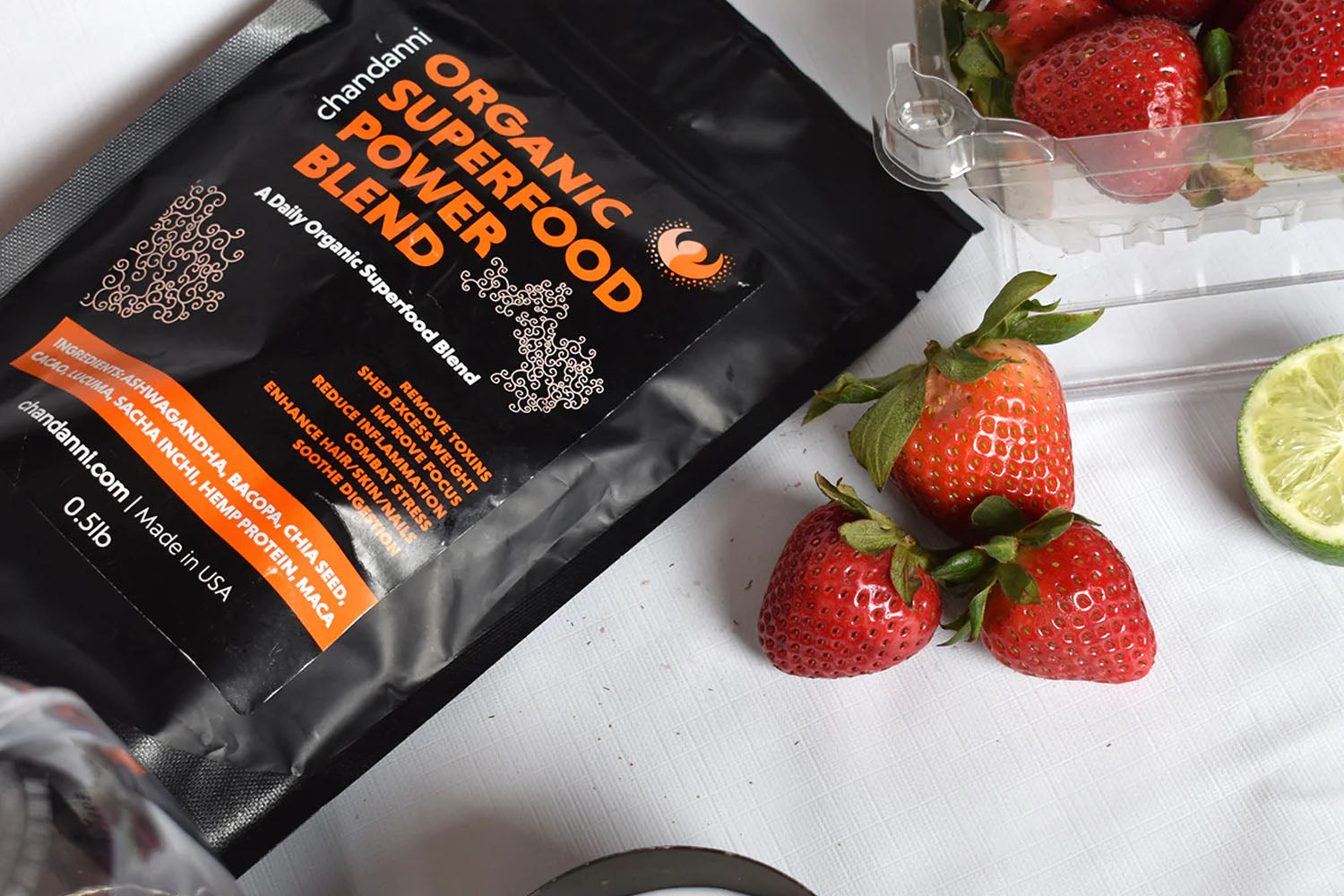
Withdrawal Symptoms: What to Expect During a Liver Detox
Sania TariqYour liver, one of your body's hardest-working organs, is crucial in detoxifying your system. But what happens when you give it a little extra help through a liver detox? While the benefits are numerous, the journey can be accompanied by withdrawal symptoms that might catch you off guard.
This blog will delve into the world of liver detoxification, explore the foods to avoid, and learn how to cope with common withdrawal symptoms, allowing you to embark on this journey toward better health confidently.
The Liver's Role in Detoxification
Your liver is the unsung hero of your body's detoxification process. Acting like a sophisticated filter, it sifts through blood, identifying and neutralizing harmful substances before they can wreak havoc. This vital organ metabolizes toxins, converting them into water-soluble compounds that can be safely excreted. [1]

Through intricate biochemical reactions, the liver ensures your body remains free from potentially harmful substances. Understanding this remarkable detoxification process is crucial when embarking on a liver detox, as it empowers you to support and optimize this natural cleansing mechanism.
Liver Detox Methods
There are several approaches to consider to give your liver a helping hand in its detoxification efforts. Each method varies in its approach and intensity, and choosing the one that aligns with your goals and health status is essential.

1. Dietary Changes
Modifying your diet is one of the most accessible and sustainable ways to support liver health. This approach eliminates certain foods while incorporating liver-loving options rich in antioxidants and nutrients.
2. Herbal Supplements
Herbal supplements are derived from plants known for their liver-supporting properties. They can aid in detoxification by enhancing liver function and promoting the elimination of toxins.
3. Detox Diets
These specialized diets are designed to give your liver a break from processing certain foods and substances. They often include fasting or consuming specific foods and beverages for a limited time.
4. Lifestyle Modifications
Lifestyle changes, such as lessening alcohol consumption, quitting smoking, and managing stress, can profoundly impact your liver's detoxification ability.
Before embarking on any liver detoxification journey, it's crucial to consult with a healthcare professional. They can assess your health needs, provide personalized recommendations, and ensure the detox method is safe and appropriate. This initial step sets the base for a successful and health-conscious detox experience.
Foods to Avoid During a Liver Detox
Being mindful of your dietary choices is essential when undergoing a liver detox. Certain foods can hinder the detoxification process or exacerbate withdrawal symptoms. Here's a comprehensive list of foods to steer clear of during your liver detox: [2]

Meat and Dairy
- Poultry and fish meat can tax the liver due to their protein content and potential additives.
- Dairy items like milk, cheese, and butter should be avoided as they can burden the liver with excess fat and proteins.
- While a valuable source of protein, eggs can be challenging for the liver to process during detox.
Grains and Starchy Foods
- Products containing wheat, like bread and pasta, are best avoided due to gluten content and potential allergenic reactions.
- White rice and various processed grains lack essential nutrients and fibre, making them unsuitable for a detox diet.
- Soy-based foods like tofu should be omitted due to their potential hormone-disrupting properties.
- Corn, including popcorn, can be challenging to digest and may interfere with detoxification.
Fruits to Avoid
- Fruits like Bananas, Mangos, Pineapples, Oranges, and Grapefruit can be high in sugar and should be limited during a detox.
- Despite their hydrating properties, melons, except for lemon and lime, are sugary fruits that are best avoided.
Other Foods to Avoid
- Honey is a natural sweetener but contains concentrated sugars that should be minimized during detox.
- Certain varieties of mushrooms may not be well-tolerated during detox, as they can be hard to digest.
- Fermented Foods, including vinegar, kombucha, yerba mate, tofu, and alcohol, all of which can disrupt the detox process.
- Potatoes, tomatoes, sweet and hot peppers, eggplant, paprika, and cayenne pepper are nightshade vegetables that should be avoided due to their potential inflammatory effects.
Supplements
- Chewing gum often contains artificial sweeteners and additives counterproductive to detox goals.
- Decaffeinated Drinks even decaffeinated green tea can have compounds that affect the liver, so it's best to choose caffeine-free herbal options.
- Anything stimulating or heating to the system, like caffeine, should be eliminated to support the liver's cleansing process effectively.
What to Expect During a Liver Detox
When embarking on a liver detox, it's essential to anticipate what lies ahead on your journey toward better health. While the experience can vary from person to person, there are some common patterns and symptoms to expect.

At the onset of your detox, you can experience symptoms immediately. However, these symptoms typically become more pronounced at the end of the first day and may persist for several days after that. [3]
Detox symptoms can manifest in various ways, and they often include;
- Muscle Pain - You may notice soreness or discomfort in your muscles as your body adjusts to the changes in your diet and toxin elimination.
- Headache - Detox-related headaches can result from caffeine withdrawal or your body's response to the absence of certain foods. Staying hydrated and taking short breaks to rest can help alleviate these headaches.
- Joint Pain - Some individuals may experience joint pain as part of the detox process. Gentle stretching exercises and warm baths can provide relief.
- Moodiness - Fluctuations in mood, including irritability and mood swings, are common during a detox. Mindfulness, meditation, and stress management techniques can help mitigate these mood changes.
- Extreme Fatigue - Feeling unusually tired is expected as your body expends energy on the detoxification process. Adequate rest and nourishment are crucial to manage this fatigue.
- Looting (Diarrhea) - Digestive changes, including diarrhea, can occur as your body eliminates toxins. Staying hydrated and consuming bland, easy-to-digest foods can provide relief.
- Night Sweats - Increased sweating during the night is not uncommon. Ensure you have suitable bedding to regulate your body temperature and stay well-hydrated.
- Discoloration of Urine - Your urine may appear discolored due to eliminating waste products. Drinking more water can help dilute the urine and reduce discoloration.
These symptoms peak around day one of your detox and persist until day four or five. It's essential to stay committed to your detox plan and remain patient, as these discomforts are often signs that your body is ridding itself of harmful substances and transitioning to a healthier state. Understanding what to expect can empower you to persevere through the challenging moments of your liver detox.
The Benefits of a Successful Liver Detox
A successful liver detox can yield many health benefits, making the effort worthwhile. By supporting your liver's natural cleansing abilities, you pave the way for enhanced overall well-being. Key advantages include improved liver function, increased energy levels, and potential long-term health benefits. [4]

- The primary goal of a liver detox is to optimize liver function. This leads to better toxin elimination, improved digestion, and enhanced metabolic processes.
- Successful detox often boosts overall well-being, making individuals more energetic, focused, and mentally clear.
- A well-maintained liver can reduce the risk of various chronic diseases, including liver disorders, diabetes, and heart disease.
- Optimal liver function supports fat breakdown, carbohydrate metabolism, and blood sugar regulation, promoting efficient calorie burning and improved weight control.
Conclusion
In conclusion, a liver detox is a powerful step toward improved health and vitality. While withdrawal symptoms may pose challenges, they are temporary hurdles to a cleaner, more efficient liver.
By preparing diligently, seeking professional guidance, and persevering through the process, you unlock benefits, including enhanced liver function, increased well-being, and the potential for long-term health gains. Embrace the journey, and let your revitalized liver lead you toward a healthier, more vibrant life.
FAQs
- What are the signs that your liver is detoxing?
Signs of liver detoxing can include improved skin, increased energy, and better digestion.
- How long do liver detox symptoms last?
Liver detox symptoms typically last a few days to a week.
- What to expect after a liver detox?
After a liver detox, expect increased vitality and improved overall health.
- Does liver detox make you pee more?
Liver detox may lead to increased urine output as the body eliminates toxins.
References
[1] https://www.ncbi.nlm.nih.gov/pmc/articles/PMC7508170/
[2] https://www.healthline.com/health/fatty-liver-diet#foods-to-avoid
[3] https://www.medicinenet.com/how_do_you_know_if_your_liver_is_detoxing/article.htm




